MedCourse Audioblog
The MedCourse Audioblog is the audio version of our blog. Our articles are aimed at UK junior doctors, nurse practitioners, and physician associates. We post speciality guides, career advice, journal clubs, and short stories by UK healthcare professionals. Check out the blog at https://medcourse.co.uk/blog
Episodes
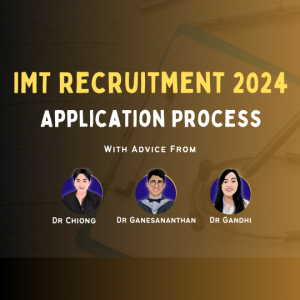
Friday May 31, 2024
Friday May 31, 2024
Internal Medicine Training (IMT) Application & Recruitment Guide is the largest hospital-based training program outside of the foundation program and is second only to GP training in size, with 1670 posts available in 2023.
Whether you want to become a world-class generalist or even a gastroenterologist in the medical specialities, the traditional training pathway is through trainings like IMT,
In this article, we’ll walk you through:
How to Apply
Competition Ratios
The Application Process
How to Choose Your Preferences
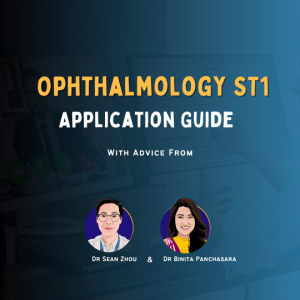
Wednesday May 29, 2024
Wednesday May 29, 2024
The Ophthalmology ST1 application is renowned for its fierce competition, demanding more than just academic prowess. With a competition ratio of 9.91 in 2023, it ranks as the 5th most competitive CT/ST1 specialty.
Aspiring ophthalmologists encounter a rigorous selection process, necessitating a strategic approach for success.
Within this article, we'll delve into the stages before Ophthalmology ST1 interview, providing pragmatic advice and insights to aid candidates not only in navigating but excelling in their pursuit of entering this captivating medical domain.
Here's what we'll cover:
The Application Timeline
Competition Ratios
The Importance of the Evidence Folder
Application Scoring

Wednesday May 29, 2024
Wednesday May 29, 2024
Returning to the UK from down under can mark a substantial transition, particularly for medical professionals such as Radiologists . Whether it's driven by family commitments, a desire to reconnect with old friends, or simply yearning for the familiarity of British traditions like a proper cup of tea, the prospect may appear daunting.
However, fret not, as I'm here to furnish you with a detailed roadmap to streamline your journey.
Here's what we'll delve into using "The Return Journey: Returning to the UK From Australia" article:
Securing Employment
Navigating Medical Regulators and Licensing
Understanding Visas and Travel Logistics
Financial Considerations
Motivations for Returning to the UK
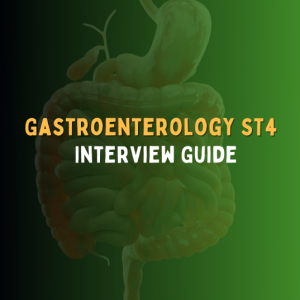
Wednesday May 29, 2024
Wednesday May 29, 2024
Gastroenterology stands out as a popular choice among medical specialties like Neurology, drawing significant interest and fostering intense competition. In the initial round of 2023, there were 309 applications vying for 111 positions, resulting in a ratio of 2.78 applicants per slot. Similarly, the competition in the first round of 2022 mirrored this intensity, with just over 3 applicants per position.
Securing a national training number in gastroenterology demands dedicated effort and preparation.
Here's what we'll cover in Gastroenterology ST4 Interview Guide:
Application Timeline
Interview Structure
Evaluation Criteria
Preparation Strategies
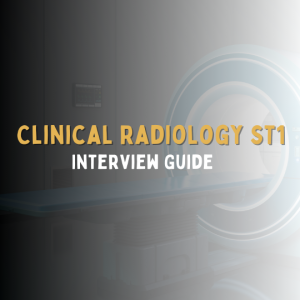
Wednesday May 29, 2024
Wednesday May 29, 2024
The Radiology ST1 interview guide marks a pivotal moment for budding radiologists. This article serves as a guide, steering prospective candidates through the intricacies of the interview process.
From grasping the competitiveness of the field to unraveling the interview structure, this comprehensive resource is tailored to furnish you with the insights and assurance required to thrive.
We'll cover:
The Recruitment Timeline
Competition Ratios
The Interview Format
Common Questions
Interview Evaluation
Moreover, our platform offers a wealth of other articles covering various specialities such as Gastroenterology ST4 Interview Guide. Explore our library to access additional invaluable resources tailored to your needs and aspirations.
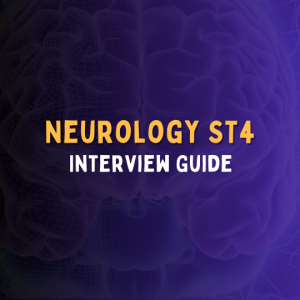
Wednesday May 29, 2024
Wednesday May 29, 2024
Neurology presents a dynamic landscape where trainees navigate independently and within multidisciplinary teams (MDT) to address patients' immediate and enduring concerns. It's an ideal realm for individuals who:
Possess adept clinical skills and effective communication abilities.
Embrace a problem-solving approach, coupled with a keen interest in applying practical neuroscience.
Thrive as team players while also demonstrating the capacity for independent work.
The Neurology ST4 program follows the PHST Recruitment pathway for medical subspecialty training, mirroring the format of other medical ST3/4 applications such as Ophthalmology ST1 Application.
Within this discourse, we cover:
Application Timeline
Interview Structure
Evaluation Criteria
Preparation Strategies
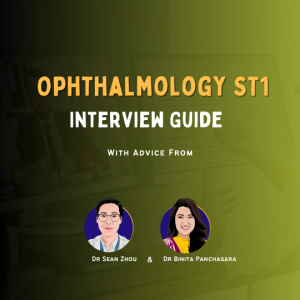
Wednesday May 29, 2024
Wednesday May 29, 2024
The Ophthalmology ST1 interview represents a crucial turning point for aspiring ophthalmologists, symbolizing the first significant stride towards a rewarding career in eye care. As the ultimate active phase in the ophthalmology ST1 application process, success here propels candidates into contention for a coveted training position.
This rigorous selection process scrutinizes candidates across multiple dimensions, encompassing clinical acumen, communication prowess, and personal attributes. With the process undergoing revisions for 2024, the precise format remains a tantalizing mystery. Nonetheless, we remain committed to furnishing invaluable tips and guidance to empower candidates to position themselves advantageously.
Within this discourse, we delve into the nuances of the Ophthalmology ST1 interview, furnishing insights and strategies to empower candidates to traverse this pivotal juncture with assurance and composure.
Our journey includes:
Unpacking the interview structure
Navigating both interview stations
Crafting compelling responses to anticipated questions
Leveraging available resources to bolster preparation efforts
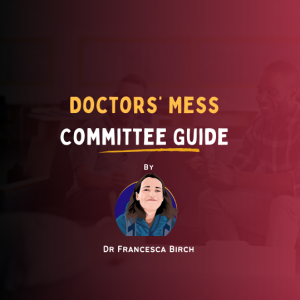
Wednesday May 29, 2024
Wednesday May 29, 2024
As an F3 doctor, I'm currently relishing my experience working in New Zealand. Reflecting on my F2 year in Exeter, I served as the president of the doctors' mess.
Initially, upon entering the foundation program, I had little understanding of what a mess entailed or its benefits, let alone the responsibilities of joining the committee. I've crafted this article "A Guide to the Doctors’ Mess Committee", to offer guidance to those uncertain about the concept of the doctors' mess and to aid individuals contemplating various involvement in areas such as "Teaching and Leadership".
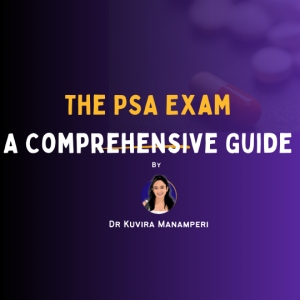
Wednesday May 29, 2024
Wednesday May 29, 2024
The Prescribing Safety Assessment (PSA) exam represents a joint venture between the British Pharmacological Society and MSC Assessment.
This online evaluation among others such as PLAB1 Exam , operating on a pass/fail basis, appraises the prescribing proficiencies of final-year medical students. It correlates with the competencies outlined by the General Medical Council (GMC) in their "Outcomes for Graduates" document.
According to the GMC's "Outcomes for Graduates 2018", these competencies encompass crucial responsibilities such as:
Drafting Prescriptions
Computing Drug Dosages
Identifying and Preventing Adverse Reactions
Addressing Medication Errors
Conducting Medication Reviews
Customizing Prescriptions for Individuals
The assessment's inquiries center on medical conditions and medications frequently encountered by new doctors during their initial year in the Foundation Programme.
Sections of the PSA Assessment include:
Prescribing
Prescription Review
Planning Managment
Providing Information
Calclation Skills
Adverse Drug Reactions
Drug Monitoring
Data Interpretation
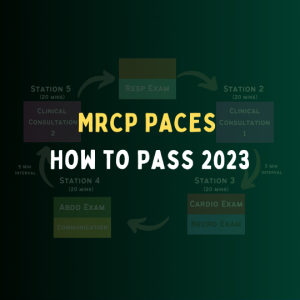
Tuesday May 28, 2024
Tuesday May 28, 2024
After conquering the grueling MRCP Part 1 and Part 2 Written exams, the PACES exam stands as the final hurdle before earning the esteemed MRCP UK diploma and joining the prestigious Royal College of Physicians (London, Edinburgh, or Glasgow).
This exam is relentless and demanding, with many candidates needing multiple attempts to pass.
It's worth noting that candidates are not required to take the PACES exam only after passing the MRCP Part 2 Written exam. It is permissible to attempt PACES after passing Part 1. However, I recommend completing both Part 1 and Part 2 Written exams first, as PACES is more a test of clinical skills than theoretical knowledge.
A quick internet search will reveal a plethora of personal anecdotes and tips of varying quality on how to pass this challenging exam. Fortunately, this article consolidates all the best advice proven to aid exam success. As someone who passed PACES on my first attempt, I will also share personal tips that were invaluable to my success.

Tell Your Story
We are always looking for healthcare professionals to contribute to the MedCourse blog. If you have a story to tell, we want to publish it on our blog page.
Learn more at Our Contribution Page





